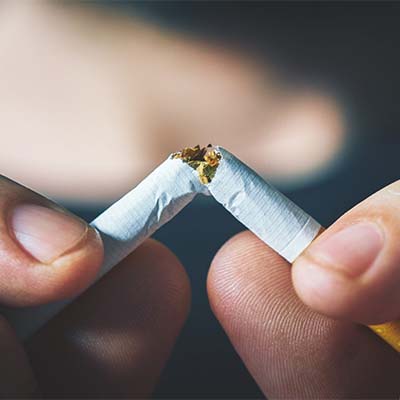

An early asthma diagnosis could help many kids avoid urgent care visits, hospitalizations, multiple days missed from school and long-term complications from having poorly controlled symptoms.
Asthma can make it hard to breathe. The condition causes swelling, blocking, and narrowing of the airways, and may produce excess mucus. Signs of asthma can appear as early as infancy.
Gurpreet Phull, M.D., pediatric pulmonologist at Hackensack University Medical Center and JFK University Medical Center, says that parents should watch for these signs of asthma in children as young as infants—and talk to their pediatrician if they notice any of them:
- Your child looks like they are working harder to breathe, pulling into the ribs
- Your child is breathing relatively faster
- You child appears to have difficulty with breathing easily
“If parents notice any of these signs, their child might have an underlying kind of chronic respiratory illness that needs to be further evaluated or diagnosed,” Dr. Phull says.
What Causes Asthma?
Asthma can be genetic, Dr. Phull says, so parents who have a history of asthma, allergies or eczema may be more likely to have a child with asthma.
But asthma is also influenced by environmental factors. Dr. Phull says parents can help control some of those environmental factors including:
- Avoid smoking or vaping around children.
- Avoid wall-to-wall carpeting if possible, or regularly clean carpet using a vacuum with a HEPA filter.
- Check pollen counts, and avoid the outdoors when the pollen count is high.
- Remove any visible mold in your home, use a dehumidifier and use exhaust fans when taking a shower.
Can a Child Outgrow Asthma?
Dr. Phull says asthma is an airway sensitivity that kids don’t quite outgrow. “As you get older, you develop better tolerance to some of the things that potentially cause airway reactivity, but that degree of reactivity is still there,” he says.
As a child grows up, even if they no longer need a daily asthma medication, they may benefit from using albuterol to lessen the severity of their symptoms when they experience a flare-up, he says.
How Is Asthma Diagnosed in Kids?
When a parent suspects asthma in their child, Dr. Phull says he spends the majority of the first visit going through their personal and family history, gathering information and determining if the child fits the clinical definition for asthma. “If a child has a positive reaction to the medication albuterol, by definition, that is asthma,” he says.
For children who are a little older and can handle it, a doctor may also perform tests to verify the diagnosis:
- Lung function test: Called spirometry, this test measures how much air is exhaled and how quickly. This test can be performed at rest, after exercise and after taking asthma medication.
- Exhaled nitric oxide test: A doctor may recommend a second test if needed to measure the level of nitric oxide in a sample breath.
“These tests can provide an objective measure of expiratory volumes and expiratory flow rates, and from that, we can get a good idea about what function looks like and the degree of reversibility when given medication,” Dr. Phull says.
How Is Asthma Treated in Kids?
Along with albuterol, controller medications are used for maintenance. “Controller medications are essentially inhaled corticosteroids,” Dr. Phull says. “I'd liken them to topically applied steroids but to the inside of the lungs.”
When a child with asthma gets sick, is exposed to allergens or is exercising, they may experience some degree of airway inflammation, but with the help of controller medication, it will be at a much lower starting baseline.
If allergens are an asthma trigger for your child, medications like Flonase, Claritin and Zyrtec will help treat upper airways. A medication like Singulair may be more suited for kids with exercise- or allergy-induced issues, or kids that have sleep disordered breathing.
Next Steps & Resources:
- Meet our source: Gurpreet Phull, M.D.
- Learn more about the Pediatric Multi-Specialty Practice at JFK University Medical Center
- To make an appointment with a pediatrician or pediatric specialist near you, call 800-822-8905 or visit our website.
Find a doctor near me

Maintaining Your Fitness Goals with Wearables

Quitting Smoking is Key – Here’s How to Do It

Is Tap Water Bad for You?
